O SON OF SPIRIT!
Noble have I created thee,
yet thou hast abased thyself.
Rise then unto that for which
thou wast created.
Bahá’u’lláh


The family was gathered in the tatami room, where they said their morning prayers. Mother was the last one to say a prayer and she read, “O Son of Spirit, Noble have I created thee, yet thou hast abased thyself. Rise then unto that which thou wast created.”
“‘Abased’ what does that mean, Mom?” asked Asma after a short pause.
“You know Asma, like… ‘fear not abasement’, it means being yourself lower than you really should be,” answered Mona.
answered Mona.
 “I know!” said little Anisa. “Like a basement in a house! We shouldn’t be afraid to go down there; just turn on the light!”
“I know!” said little Anisa. “Like a basement in a house! We shouldn’t be afraid to go down there; just turn on the light!”
Everyone laughed, and Riaz said, “Not that kind of a basement silly! Though it is lower…. It means… ah…, Mom?” looking at Mother expectantly.
Mother smiled and said, “It means that we are spiritual beings and can reflect all the attributes of God, but when we only think of ourselves, we lower ourselves to the state of an animal. Also, we should see every person as reflecting the light of God, and treat them with respect. If we don’t, we are abasing them and treating them as less than noble.”
“Noble…that means like a king or queen or something, right?” said Shahla.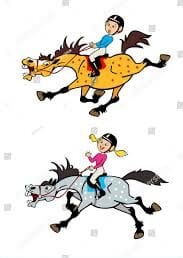
“That is the physical side of ‘Noble’”, put in Father, who had been listening to everyone quietly. “In this case it means ‘of the spirit’, or ‘light’, or ‘love’. Man has two natures: one is the physical, our animal side, and the other is the spiritual side, the soul.”
“I like to think of it like a person on a horse,” said Mother. The horse is our animal side and our soul is the rider. We can’t let the horse (our animal side) decide where to go. The rider (our spiritual side) needs to guide the horse in the right direction. And if we always do that, we are being Noble.”
“Ha! Riaz is always letting his horse get away from him!” laughed Asma, and the other children joined in, even Riaz.
“But Mom…,” said Shahla. “We can’t see people’s souls! We can’t see the Riders, only the Horses! The Riders must be invisible!” With that everyone laughed again.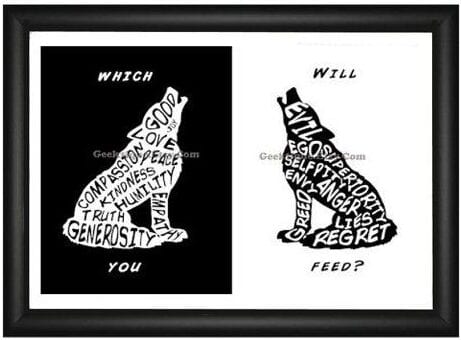
Mother smiled, and looking into Shahla’s eyes, said, “If we look with the eyes of love, we can see them!” And the children clapped with glee.
“Oh, I remember another example we learned…the Native American story of the two wolves that live inside of us,” said Riaz. “The grandfather was telling his grandson about it, and he said that these two wolves, the good wolf and the bad wolf, are always fighting! And the grandson asked which one wins…”
Shahla cut in, “And the grandfather answered, ‘the one you feed the most!’”
Riaz gave Shahla a dirty look for stealing his story, and finished with, “That’s our free will! To choose to act like the good wolf or the bad wolf.”
“HUH?” asked Anisa. “I don’t get it.”
Mona explained, “If we always just do what we want, it gets harder for us to do what is right… (so we’re feeding the bad wolf), but if we always try to do what is good for other people without thinking about ourselves, it gets easier and easier (and we’re feeding the good wolf). Then, we are acting Noble! Right, Mom?”
“Great explanation, Mona,” praised Mother. “So, we show our nobility by all the different virtues that we all are learning. Can you name some?”
“Love!” “Kindness!” “Truthfulness!” “Forgiveness!” “Generosity!” The children all shouted.
 Father put in, “Bahá’u’lláh said that Man (meaning each person) has the capacity to reflect all the attributes of God. And these are just a few that we know…. We have capacities that we don’t even know about!”
Father put in, “Bahá’u’lláh said that Man (meaning each person) has the capacity to reflect all the attributes of God. And these are just a few that we know…. We have capacities that we don’t even know about!”
Asma put in, “Like Creativity! God is the Creator, bringing something that didn’t exist
before into being! And we can reflect that attribute! Think of all the things that humans have invented. Machines like airplanes and cars; also, music, stories, art…!”
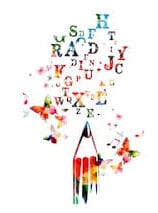 Mona said, “Language! Language is something that humans invented that lets us communicate with other people… even to the other side of the world!”
Mona said, “Language! Language is something that humans invented that lets us communicate with other people… even to the other side of the world!”
Father added, “Bahá’u’lláh said that the real purpose of language is so that man can learn about God and worship God. We do that by learning about the Manifestations of God. They are the ones that teach us all the virtues we need to grow our souls.”
“We have the capacity to use all those virtues, but really we are still like babies, not fully grown. We come to this world to finish growing,” explained Mother.
“Oh, that sounds like the kangaroo baby,” said Asma. Everyone looked at Asma in confusion. “Well, a grown kangaroo is almost as tall as a person, but, when the baby kangaroo comes out of its mother, it is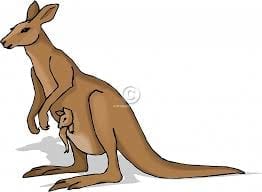
 not really finished…. It looks like a tiny bug! It crawls up and into its mother’s pouch, and there,
not really finished…. It looks like a tiny bug! It crawls up and into its mother’s pouch, and there, 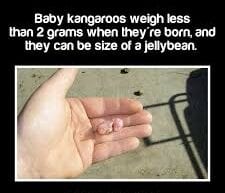 drinking its mom’s milk, it hides. It changes and grows until it can get out and be a young kangaroo, jumping around!”
drinking its mom’s milk, it hides. It changes and grows until it can get out and be a young kangaroo, jumping around!”
“Wow! I want to see pictures of that!” said Riaz.
“I have a book about Australia that I checked out from the library; I will show you,” said Asma.
“Yeah!” cheered all the children.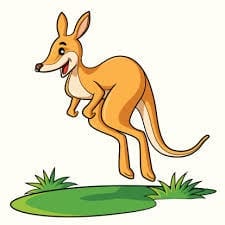
“So,” Mother said, bringing everyone back to the topic. “Like the baby kangaroo, we are born into this world, which is like being inside the Mother Kangaroo’s pouch. We have a baby body and a baby soul. Our bodies grow, and we need to grow our souls, too, so we can jump out of the pouch, and go to the next world.
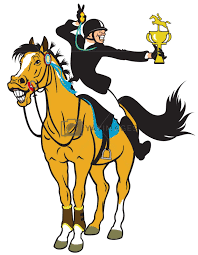 “Remember, the Horse and Rider: the body is just the horse. When we reach our destination (the next world), we will get off the horse (that is, our bodies will die). So our souls need to be grown and ready to go to the next world… to go home!”
“Remember, the Horse and Rider: the body is just the horse. When we reach our destination (the next world), we will get off the horse (that is, our bodies will die). So our souls need to be grown and ready to go to the next world… to go home!”
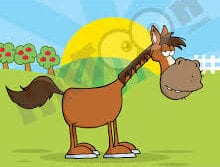 Father then said, “In conclusion to all this talk about Man’s Nobility, I would like to finish with a quote from Bahá’u’lláh in The Hidden Words. ‘Thy heart is my home, sanctify it for my descent.’ That means we need to make our hearts pure, not thinking only about ourselves, but caring about everyone else. That is how we become Noble. When our
Father then said, “In conclusion to all this talk about Man’s Nobility, I would like to finish with a quote from Bahá’u’lláh in The Hidden Words. ‘Thy heart is my home, sanctify it for my descent.’ That means we need to make our hearts pure, not thinking only about ourselves, but caring about everyone else. That is how we become Noble. When our  hearts are clean, God will come in! Then the light of God will shine through our souls.”
hearts are clean, God will come in! Then the light of God will shine through our souls.”
“Are we done now? It’s a nice day… I think my brother and sisters would like to go outside and play now,” said Riaz with a sly smile on his face. “See, I am thinking about others and letting God shine through me!”
“Sure you are Riaz! You are only thinking about us and not yourself at all!” laughed Asma, and everyone else joined in.
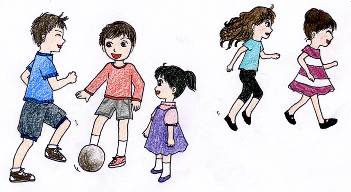 “Ok,” said Mother, “Help me clear off the table and put the breakfast dishes in the sink, then you can all go out and play!”
“Ok,” said Mother, “Help me clear off the table and put the breakfast dishes in the sink, then you can all go out and play!”
And that is just what they did!

Quiz
- At the beginning of the story, what was the family doing?__________________________________________________________________________
- What does “Noble” mean?
___________________________________________________________________________ - In the example of the Horse and the Rider, which one is our body, which one is our soul
___________________________________________________________________________ - In the story of the Good Wolf and Bad Wolf fighting inside of us, which one wins
___________________________________________________________________________ - Name some of the virtues we can show that help us become Noble
___________________________________________________________________________ - How big is an adult kangaroo? How big is a newborn kangaroo
___________________________________________________________________________ - How are we like a baby kangaroo?
____________________________________________________________________________ - What happens to our “Horse” when we get off of it? What happens to the “Rider”?
____________________________________________________________________________ - How do we become Noble?
___________________________________________________________________________ - At the end of the story, what did Riaz want to do?
____________________________________________________________________________

How did you do?
Answers are on the Parent’s Page
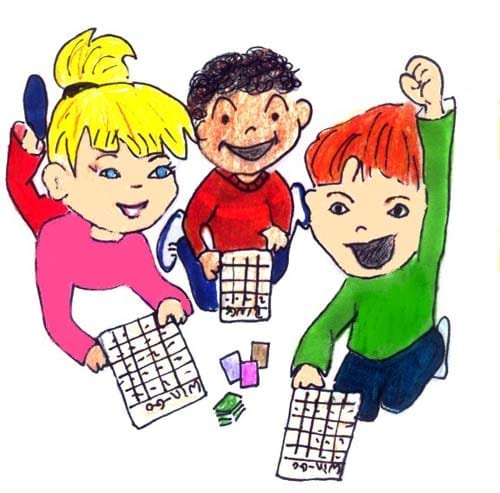 Materials:
Materials:
Bingo card
Scissors
Glue
24 small pieces of construction paper to be the Virtue Cards
25 bits of paper to cover the squares of the Bingo Card
Method:
*Make copies of the Bingo Card for each child, and one extra.
*Each child cuts out the virtues and glues them randomly onto the board.
*The LOVE virtue in the middle is the Free Space….
*With the extra page, cut out the virtues, and paste each virtue onto small construction paper cards.
*One person is the “Caller” and calls out the virtues from the Virtue cards, while the others put the paper markers on their Bingo Cards.
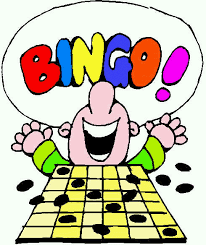
Extra: For every virtue called…Think of when they had seen that virtue in someone or some character in a story
Patience
Compassion
Service
Obedience
Helpfulness
Kindness
Caring
Honesty
Cleanliness
Forgiveness
Unity
Justice
Love
Generosity
Creativity
Truthfulness
Thankfulness
Trustworthiness
Respect
Responsibility
Courage
Humility
Gentleness
Courtesy
Mercy
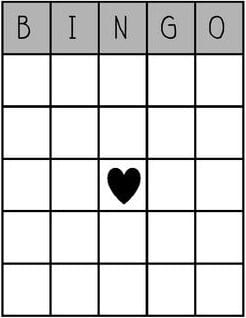
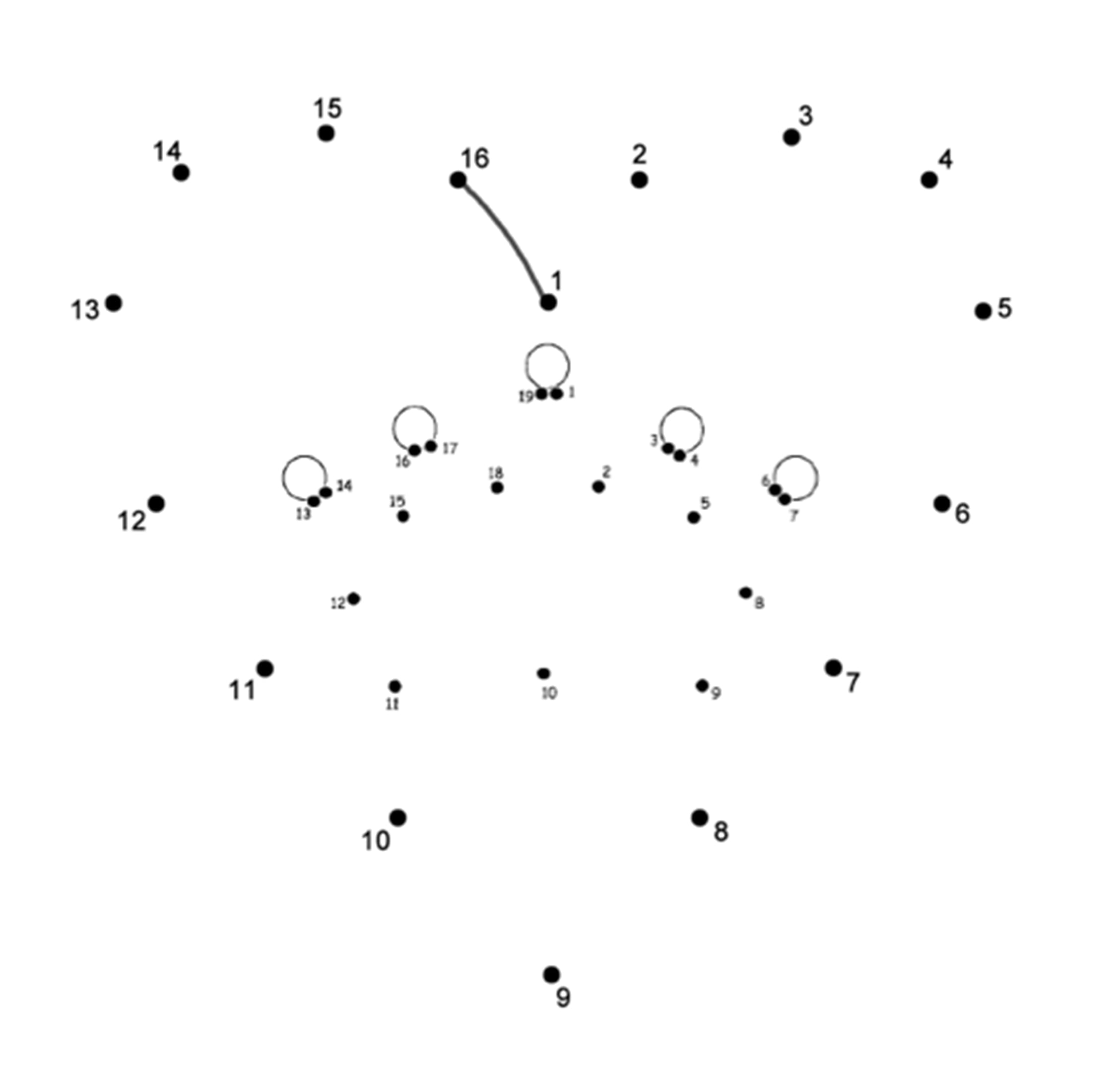 Parents’ Page
Parents’ Page
“With the hands of power I made thee and with the fingers of strength I created thee; and within thee have I placed the essence of My light.” Bahá’u’llah, Hidden Words Arabic #12.
Man, the noblest and most perfect of all created things, excelleth them all in the intensity of this revelation, and is a fuller expression of its glory. – Bahá’u’llah, The Book of Certitude, p. 102.
“For in him are potentially revealed all the attributes and names of God to a degree that no other created being hath excelled or surpassed.” Bahá’u’llah, Kitab-i-‘Iqan.
“O Son of Spirit! I created thee rich, why dost thou bring thyself down to poverty? Noble I made thee, wherewith dost thou abase thyself? Out of the essence of knowledge I gave thee being, why seekest thou enlightenment from anyone beside Me? Out of the clay of love I molded thee, how dost thou busy thyself with another? Turn thy sight unto thyself, that thou mayest find Me standing within thee, mighty, powerful and self-subsisting.” – Bahá’u’llah, The Hidden Words, pp. 6-7.
“In man there are two natures; his spiritual or higher nature and his material or lower nature. In one he approaches God, in the other he lives for the world alone. Signs of both these natures are to be found in men.” ‘Abdu’l-Bahá, Paris Talks.
“What a power is love!” “In the world of existence there is indeed no greater power than the power of love. When the heart of man is aglow with the flame of love, he is ready to sacrifice all─even his life.” ‘Abdu’l-Bahá, Paris Talks.
It is possible so to adjust oneself to the practice of nobility that its atmosphere surrounds and colors every act. When actions are habitually and conscientiously adjusted to noble standards, with no thought of the words that might herald them, then nobility becomes the accent of life. At such a degree of evolution one scarcely needs try any longer to be good — all acts become the distinctive expression of nobility. – ‘Abdu’l-Baha, Star of the West, Vol .4.
Know thou that every soul is fashioned after the nature of God, each being pure and holy at his birth. Afterwards, however, the individuals will vary according to what they acquire of virtues or vices in this world. Although all existent beings are in their very nature created in ranks or degrees, for capacities are various, nevertheless every individual is born holy and pure, and only thereafter may he become defiled. – ‘Abdu’l-Bahá, Selections from the Writings of ‘Abdu’l-Bahá, p. 190.
Answers to the Quiz:
1) Saying morning prayers. 2) Having a high rank, having high moral principles, thinking of others before yourself. 3) the Horse is our body; the Rider is our soul. 4) The one you feed the most! 5) See Bingo game! 6) About the size of a person. About the size of a jellybean, or a little insect. 7) We need to grow our souls before we can get out into the real world, the next world. 8) The Horse dies and the Rider walks into his home. 9) By caring about others more than ourselves. 10) Go out and play.

